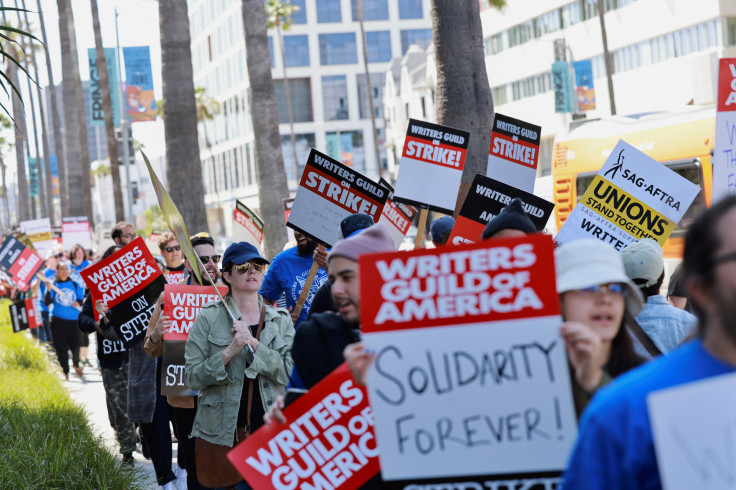British film and television crews urge government to step in with financial support amid Hollywood strikes
From actors and writers striking in Hollywood, British film and television crews have less work, with productions such as Deadpool 3 shutting down in Britain.

Hollywood is currently at a standstill with strikes taking place from the many actors who are members of the Screen Actors Guild and American Federation of Television and Radio Artists (SAG-AFTRA).
The strikes from the SAG-AFTRA members began in July and were followed by the Writers Guild of America (WGA), who have been striking since May.
Both SAG-AFTRA and WGA are striking due to wanting fairer and higher residuals, with streaming services changing the landscape of what should be reasonably owed to those who contributed to a television or film project. Also, both of the American unions have increasing concerns over the usage of artificial intelligence (AI) in the film and television industry moving forward.
The writers are worried about how it will affect the process for screenwriting and actors are apprehensive over how much they will be compensated for their likeness being replicated and used by studios in future projects.
The biggest impacts of the Hollywood strikes are that SAG-AFTRA members cannot film or work on any projects, they are not allowed to promote any of their projects, and they cannot sign up or negotiate for any new projects. Actors not being able to film anything has brought a deadlock to the productions of film and television projects involving SAG-AFTRA members.
Among those to have been severely impacted by the Hollywood strikes are British film and television crews, with there being a massive reduction in the amount of work that staff can attend to. The crew members who work on film and television productions include freelancers and due to there being much less work out there for them, many have struggled financially.
To combat the financial struggles of British film and television crew members, a petition has been set up by campaigner Laura Evans to alert the British government on the matter and request an income replacement scheme.
The petition laid out the concerns, mentioning: "We want the Government to do more to support UK TV and Film Crew who are unable to work due to strikes by actors and writers. The UK freelance crew who work on these projects need financial support and reassurance from the Government that they will not abandon the crew during this crisis."
The COVID-19 pandemic put many crew members out of work for a while, so many of them would have only just started getting back to work and now income will dry up for them again because of the strikes. Projects from US studios make up a notable amount of the work that British crew members are involved with, so many workers are set for a tough period ahead if they are not taken care of.
When the WGA went on strike first, the film and television industry was heavily impacted as writers apart of the union could not be involved with projects in any capacity. This meant some productions did shut down as the screenwriting process may have been incomplete, or there may have been a preference to have writers on set to adjust the screenplay even if a script was complete prior to the WGA strike.
Some projects still went ahead with filming as its scripts may have been fully completed before the WGA strikes began and there was confidence that production could continue without the presence of writers. This meant there were still some projects for British film and television crews to work on, but when SGA-AFTRA began striking, the industry was as good as shut down.
Evans' petition highlighted how crew staff are coping with the strikes. It read: "Many are suffering financially and mentally and are having to find work elsewhere. This could have a long-term effect on the entire industry."
The importance of the British film and television industry is displayed through its contribution of billions to the economy, and that mostly comes from projects that are US productions. Some of the major productions to have halted filming in Britain include, Deadpool 3 and Wicked, whilst the live-action remake of How to Train Your Dragon was meant to begin filming in Belfast last month.
In order for the British government to consider the petition and debate the matter in Parliament, there needs to be 100,000 signatures signed by next February. As of now, just over 28,000 people have signed the petition.
© Copyright IBTimes 2024. All rights reserved.






